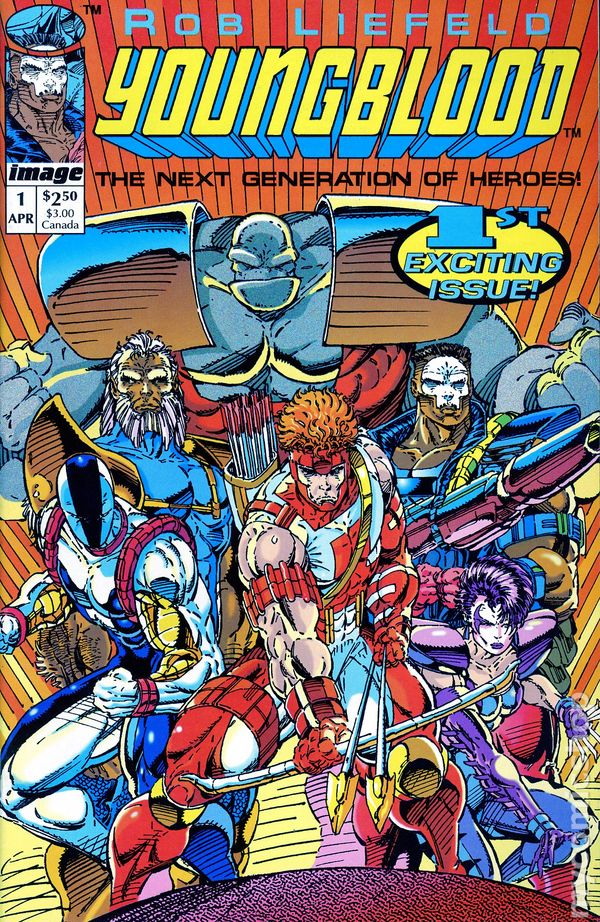
Writer/artist Rob Liefeld revealed in a Facebook post last week that he no longer owns Youngblood, the first comic he did after famously leaving Marvel to help create Image in order to, essentially, ensure that he would always own his own creations.
Not only that, but Liefeld also revealed he hasn’t owned Youngblood for more than 20 years, even while serving as the face of the franchise — which also includes such well known Liefeld creations as Badrock, Shaft, Vogue and Sentinel — regularly promoting it, and pretty much always giving his blessing to new creators who worked with the characters. And not only that, but as of precisely now, Liefeld will no longer be involved with Youngblood, not even a little bit, at all, ever — not if changes to who holds the publishing rights license aren’t made.
Liefeld’s Facebook post, which went up on Wednesday, explained some of the reasons why, along with some of his rationale for walking away from his most famous creator-owned characters. The post pointed to a regretful business deal Liefeld made in his 20s, two decades of a cordial arrangement, and, finally, the recent involvement of a new publisher with a controversial past who Liefeld felt was severely disrespectful, to the point of making his continued involvement with Youngblood comics untenable.
From recent conversations with all the involved parties — including Liefeld himself — what has emerged is a clearer picture of what Liefeld described in his initial post as “an ugly custody battle.”
Youngblood’s Ownership Trajectory
The best way to understand why Liefeld took to Facebook this week to disavow Youngblood is to perhaps trace the ownership trajectory of the characters. While the actual creation of the property dates back to the late ‘80s, it became (mega) profitable in 1992, when Youngblood #1 was the first comic published by Image after Liefeld, Jim Lee, Todd McFarlane and others shunned Marvel and DC to form the new publisher.
Youngblood was, essentially, the de facto flagship comic for Image, itself a venture that would soon grow into the industry’s third largest publisher and a lasting symbol for the viability of creator-owned characters, ideas and concepts. For five years or so after that, all was mostly well with Youngblood (not counting the delays).
In 1997, the ownership rights for Youngblood changed, moving out of the hands of Liefeld, the creator. Liefeld had left his association with Image Comics and taken Youngblood with him, moving on to form Awesome Comics with Jeph Loeb (now of Marvel Television) who brought to the table Scott Mitchell Rosenberg as an investor. Liefeld knew Rosenberg, who’d been president of Malibu Comics, which had helped Liefeld and the others launch Image. Rosenberg is also a key figure in all of this. When Awesome Comics shut down in 2000, the rights to the characters involved were split between Liefeld, Rosenberg, and a third investor in Awesome Comics, John Hyde.
In a phone conversation Monday, Liefeld said that from 1997 until some point last year, he and Rosenberg have had a cordial and productive working relationship, with Liefeld serving as the public face of the Youngblood franchise, fielding calls whenever there is interest in it and taking any business dealings back to Rosenberg.
“I am the heart, the soul, the everything of Youngblood,” Liefeld said. “I am Youngblood. So when these companies call, they want to talk to me, and what I have done for 20 years is loop in Mr. Rosenberg.”
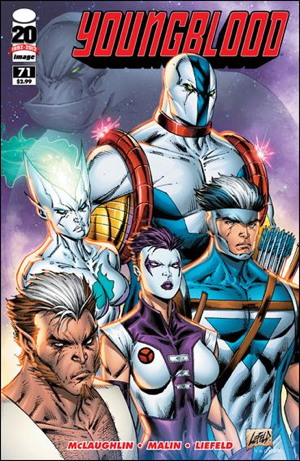
From 1997 until the middle of 2018, there were certainly plenty of Youngblood comics published, with a staggering pedigree of creators involved, too. Alan Moore, Kurt Busiek, Robert Kirkman, and Brandon Thomas have all put in work on Youngblood, even if that work amounted to as little as a single issue or story concepts at the time. For the property’s 25th anniversary, a new series was launched in 2017, which ran for 12 issues put out once again by Image Comics before having its final two solicited issues abruptly pulled in July 2018. This was right around the time Liefeld says there was a change in his cordial understanding and relationship with Rosenberg.
“We have had a workable relationship for 20 years,” Liefeld said. “He then informs me he made a deal with Andrew Rev.”
Andrew Rev vs. Rob Liefeld
Andrew Rev has had a long and mostly tumultuous involvement with the comics industry, one that until he was named directly in Liefeld’s Facebook post, seemed to have ended.
Rev once owned Comico, an indie publishing company that went into bankruptcy in the 1990s. During a phone conversation on Sunday, Rev described himself as someone who had been in comics and is now returning with a new venture called Terrific Productions, for which he did portfolio reviews last month during San Diego Comic-Con. Rev said he had a familiarity with Rosenberg from his time in comics in the ‘90s, and so when he was looking for a splashy IP to lead his new venture, Rev reached out to him. That’s how Rev came to be involved with Youngblood.
One thing that emerged both in talking to Liefeld and talking to Rev, is that the two men are not likely to work together any time soon.
In more than an hour on the phone, Rev never used Liefeld’s name, referring to him only as “that creator” because he said he didn’t want to give him any publicity. Rev bounced wildly between praising Liefeld for everything from the quality of his artwork to his boldness to his savvy as a marketer, while also criticizing him pretty harshly, especially his decision to go public with his problems with Rev and by extension the “in utero” company that is Terrific Productions. Rev suggested Liefeld is a “fat cat creator getting flown out to London” whose agenda is less about making indie comic books and more about getting in the news to catch Hollywood’s attention.
Rev’s fitful way of speaking makes him tough to quote, but this is as close as he came to one that sums up his side of things: “There’s 50 ways to get a solution and I’m creative enough to come up with 51. You know what I mean? And when someone has a different agenda — and the biggest agenda is he has his own properties he’s trying to get into Hollywood… OK, Terrific Production isn’t making movies here. More power to you. My answer? I hope you make a billion with the movie. I hope it’s bigger than the Marvel title he’s associated with. I hope he makes mega billions….but stop interfering with a company that didn’t even release anything. Leave our creators alone.”
Rev, who’d clearly put real effort in to studying the current comics market based on news items he cited, is also contending that if his company relaunched Youngblood a certain way, it could get the million-plus people who bought early issues of Youngblood comics in the ‘90s back into comic book stores in an advent on par with The Death of Superman, which seems, frankly, a bit far-fetched (even when the editor-in-chief of Marvel suggests he has a plan to do it).
Liefeld, for his part, said Rev was disrespectful to him, frequently telling him he could make Liefeld a big success in comics (Liefeld co-created Deadpool, btw), or the next Todd McFarlane, who is by most metrics Liefeld’s direct peer. Personal issues aside, Liefeld also questioned whether Rev’s involvement was best for Youngblood.
“It’s not like Youngblood was positioned in a way that benefited the property,” Liefeld said. “This Andrew Rev guy, as far as I can tell, hasn’t produced a comic in 20 years.”
So, why then would Rosenberg or parties closely associated with him that still own Youngblood, license the IP to Rev?
‘…none of it makes any sense…’
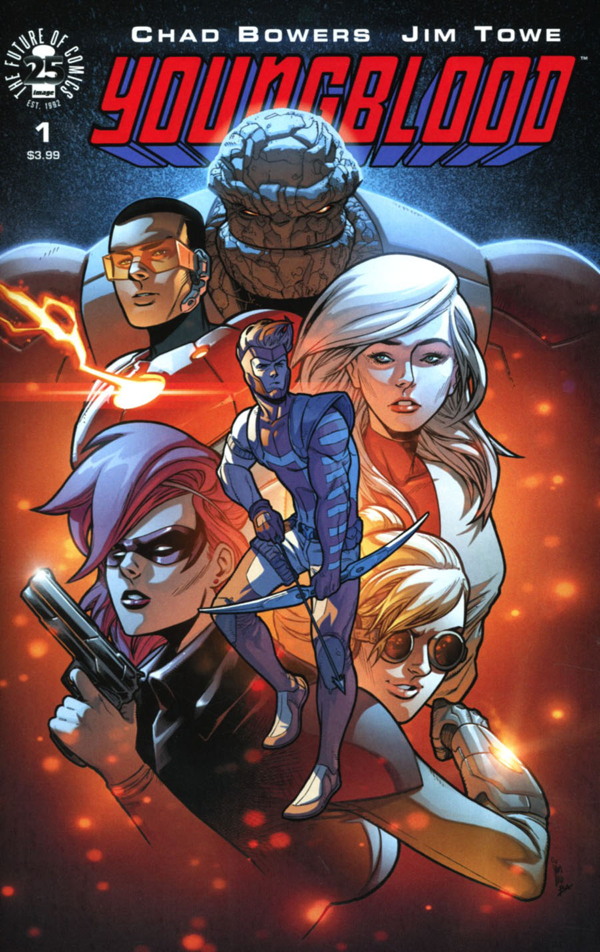
What really emerges from this whole thing is that Liefeld’s post maybe uncovered a huge morass that involves controversial publishers who have long been dogged by claims of unorthodox business dealings.
The business side of this situation certainly feels unorthodox from the outside, at least to Liefeld, whose creations are directly affected by it.
“This is the shadiest, shiftiest thing I’ve ever seen,” Liefeld said of Rev’s acquisition of Youngblood’s publishing rights, “and none of it makes any sense, and when you poke and prod at the story, it shifts and it changes.”
When reached by phone Monday, Rosenberg largely downplayed his own involvement with the situation, saying that Youngblood was actually owned by Rip Media, Inc., not himself. Rosenberg said Rip Media was a “corporate entity” that he once owned, and that it had actually made the deal with Liefeld in the late ‘90s to put the money into Awesome Comics. Rosenberg said he no longer owned Rip Media but was still close to that company and aware of its actions. Ultimately, he said it was Glenn Eggert, who Rosenberg works with on other ventures, who made the Rip Media deal with Rev.
This is not the first time Rip Media has been involved with IP ownership controversy. The company also came up six years ago in relation to Rosenberg’s Platinum Studios trouble. That’s not entirely relevant here though, other than to point out that Liefeld is not the first one to be confused by business with Rip Media. Rosenberg on Monday directed specific questions about Rip Media to Eggert, who said he was happy to provide what info he could via e-mail.
The main line of inquiry asked of Eggert was whether the company — which still ultimately owns Youngblood — was concerned about the creator and public face of the franchise going public with a disavowment of it due to the behavior of the license-holder of its publishing rights. Here’s what Eggert wrote back:
Rip Media, Inc. acquired and owns a 100 percent interest in 514 characters, including Youngblood, as part of an agreement among Rip Media, John Hyde’s company and Rob Liefeld.
As to Terrific Production, of which Andrew Rev is the president, there is a contract in place with Rip Media, Inc. It is Terrific Production’s decision as to what the relationship is with Rob, as long as it’s in compliance with our contractual terms.
In regards to how the company feels about the situation, we really can’t comment on it.
The situation certainly does not seem like an ideal one at this point for anybody; not Liefeld who is still atoning for business mistakes made more than 20 years ago; not Rip Media, which would ultimately benefit from a profitable Youngblood franchise; and not Rev with his grand visions of riding back into comics at the head of a new line of books that have Youngblood among them.
Liefeld’s central question now is why, if the rights for a comics property as well-known as Youngblood were available, was there not a more public sale and bidding process? He expects that some major names in the industry — specifically Image, IDW, or Skybound — would have made more profitable offers than whatever Rev paid.
As for why he made the conflict public, Liefeld offers, “I felt like the fans were owed an explanation, and you can say I’ve hidden it for 23 years, but it’s not a secret. My closest friends in the business knew and even some fans I have a close relationship with knew. Never in a million years did I think they’d end up with a guy with no publishing record.”
Liefeld says in the days since he went public, Rev has entirely changed the way he deals with him for the better, but that he still won’t work with Rev because he’s stubborn and also feels like Rev’s behavior in the past year is unforgivable. When asked if he was optimistic about the future of Youngblood at all, Liefeld couldn’t say. He thanked fans for being interested and supportive as well as for the 100-plus comments they left on his post, but he reiterated that he was still ready to just move on from this property — its pivotal place in the history of creator-owned comics aside.
“I’ve got a lot of ideas, man,” Liefeld said. “I have stuff in the drawer my management and agents can tell you I’m trying to get off the ground…it may be that Youngblood has run its course, and if that’s the case, I apologize to everybody. That’s on me. I made a bad deal, and now I’m living it.”


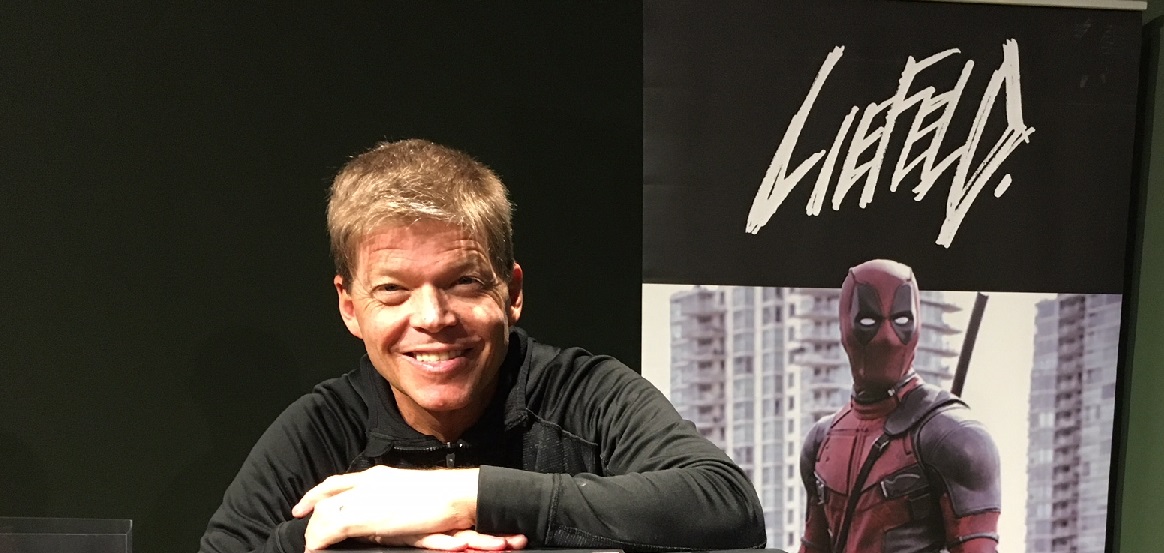
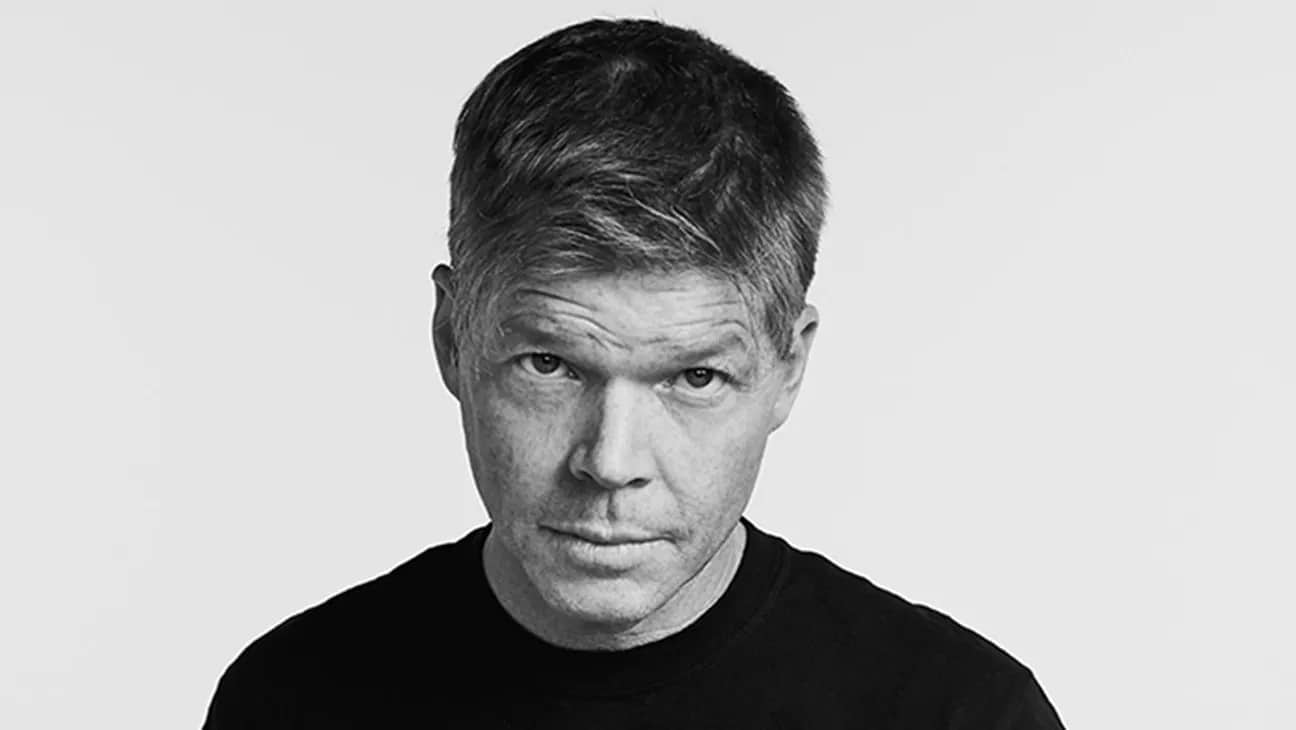
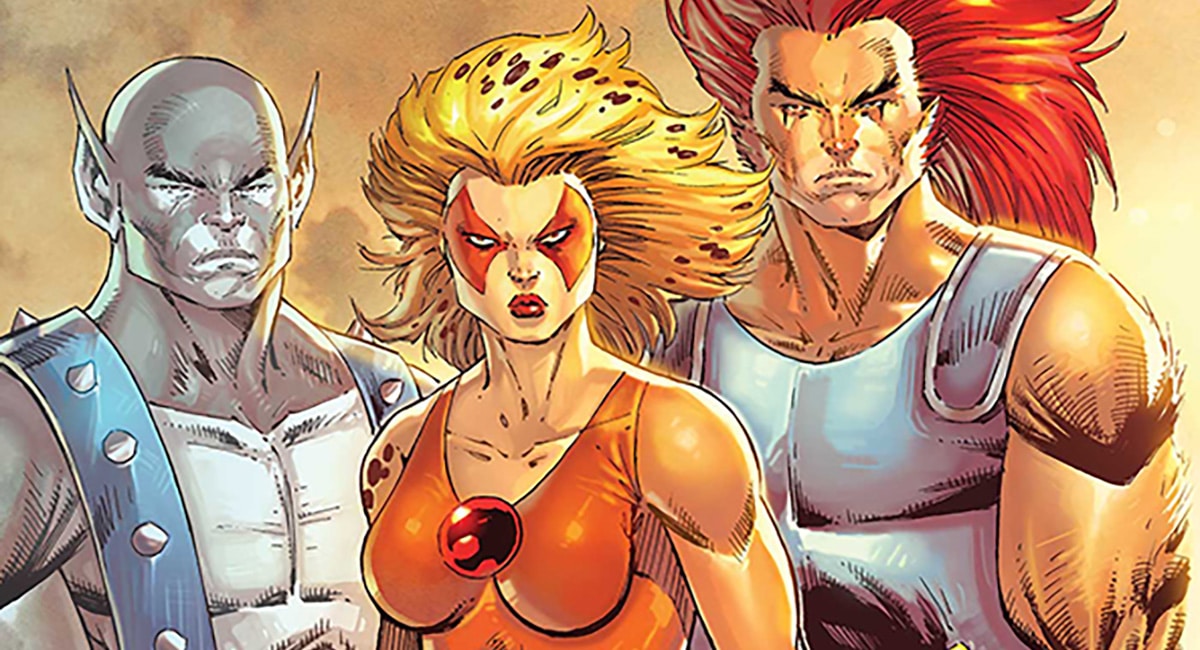
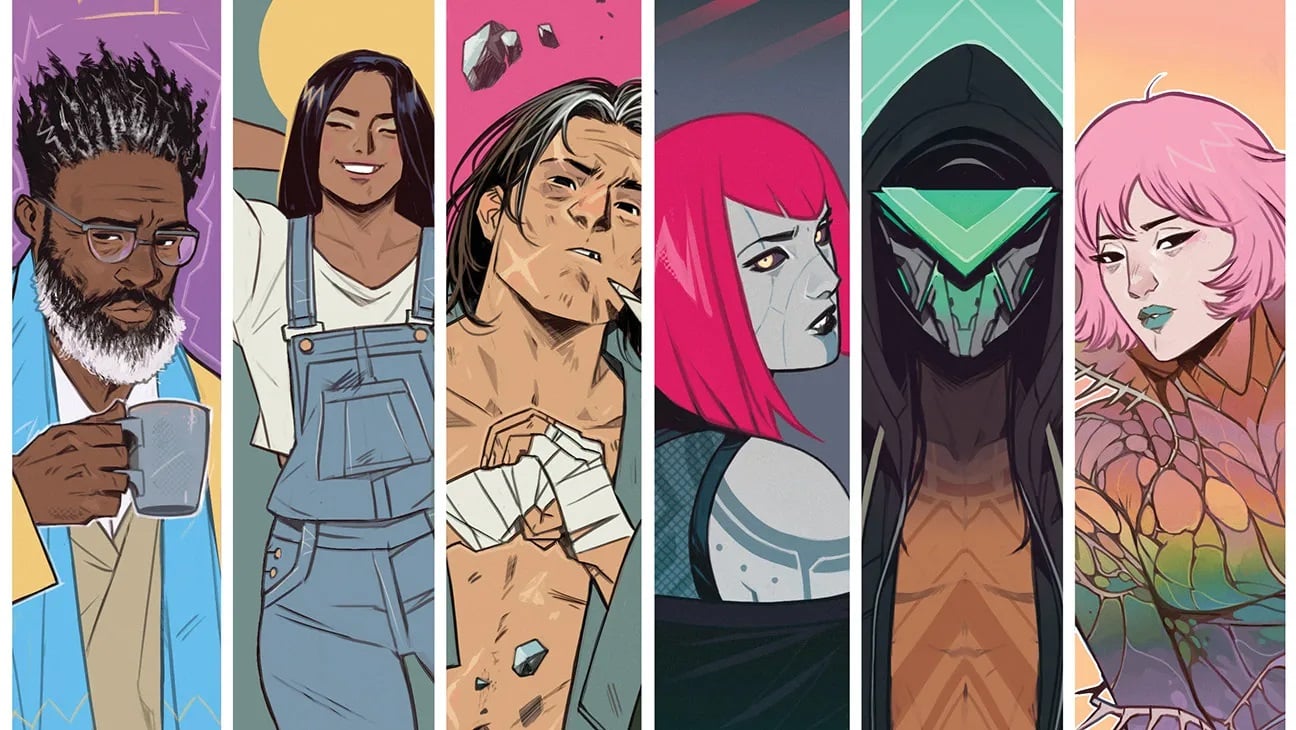



No mention or questions about the fact that Rob Liefeld owns BRIGADE and had fans fund a Kickstarter for $35,000, twice what he said he needed to produce 2-3 FREE issues of Brigade, with print runs of 50k+, and all sorts of incentives. Despite all his lies and delays, he double dipped at the end of 2018 by getting more fans to give him another $5,000 on Indiegogo for the say unproduced book. Now he’s having a pity party tour and you guys are just going to give him a podium to bamboozle more people into feeling sorry for him? Very disappointed with this site.
““This is the shadiest, shiftiest thing I’ve ever seen,” Liefeld said of Rev’s acquisition of Youngblood’s publishing rights.”
How dare he say this when the awful stuff he’s done to backers is available for everyone to see on his Kickstarter and Indiegogo pages. Again, Rob OWNS Brigade and was paid to fulfill on his promises SIX YEARS AGO. All he’s done is lie to fans, update after update. Look it up for yourself, and read the comments from backers. Marat Mychaels even confirmed on Twitter that Rob lied when he said he was inking Marat’s pencils for issue 3, as he had not pencilled a single page.
Comic new media, please shed some light on this matter. I will provide all the direct link to all public sources.
It’s weird to say this, because Rev sounds like a sleazeball, but he’s right that Liefeld is just chasing the same Hollywood dream he’s had since five minutes after he co-founded Image. Rob’s main function as a creator has been acting as a random name generator for the past twenty years, cranking out properties like Re:Gex and CyberPunx, giving them an issue or two each (maybe even a #0 drawn by a lesser-known artist) and trying to sell everything to production studios. He also kept royalties for properties other creators made for his companies, i.e. Dan Fraga’s Black Flag.
That doesn’t mean he should lose access to characters he created! But it does mean that he’s about on the same level as Andrew Rev. He’s a guy trying to get his name out there, trying to make a buck off somebody else’s work. Liefeld crashed Extreme into the rocks, and then he crashed Maximum into the rocks and then he crashed Awesome into the rocks and then he crashed Arcade into the rocks. That he made a terrible business decision somewhere in there is not surprising. What’s surprising is comics news outlets acting like Rob Liefeld is some honorable businessperson trapped in a mess he didn’t create with his own sleazy practices.
And next time you follow-up with Rob, ask him about this tweets regarding Herb Trimpe’s final pages, that Rob said he was inking prior to when he passed away, and repeated in his Feb 2019 “Herb Trimpe did an entire issue of X-Force that was intended as an inventory. 9 months before he passed away, he sent me the entire story. I’ve inked a few pages and hope it sees print some day with proceeds going entirely to his family.”
These pages should return to Trimpe’s family, or Rob should finish what he promised, instead of trotting out the same BS update so people can say “wow Rob, you’re such a nice guy!”
Youngblood may have been first out of the gate, but I think the flagship of the early days of Image would be Spawn. If for no other reason that there was more Spawn issues published than anything else in the line. It was well into double digit issue numbers before any other title came close.
A mix of delusions going on here but chief amongst them is anyone thinking Youngblood is a flagship title on which an empire can be built.
he bragged about making $400,000 on Youngblood #1 alone. he squandered the money. Personally, I wouldn’t have done that. It’s a shame.
Ted that’s enough. This article is not about Rob Liefeld’s misdeeds, it’s about contemporary publishing. Putting you on time out. I have reached out to you on another platform but this is not the place for your campaign. I understand that you have questions but you have derailed all other conversation.
Fight! Fight! Fight!
Rob made a bad deal and now he doesn’t like it? Why does this article read like we should feel sorry for the guy, and why didn’t you ask why he sold it in the first place or for how much? Either he sold those characters for little because he needed the money, or he sold them for a lot. Both cases he made the deal, and he’s admitting it was a bad one. How many bad things has Rob done to others throughout the years that don’t get mentioned here or anywhere else.
Rob’s burned so many people throughout his career, from supplies, coworkers, exhibitors, retailers, fans, so maybe he got a taste of his own medicine. He burned everyone on his kickstarter crowdfunding. And did anyone bother looking at the sales for Youngblood the last decade, with Rob’s name attached? You’d never know that was a title anyone cared about. Seems like that research would have been nice to include here, otherwise this just reads like Rob’s a big victim and its impossible to feel sorry for him.
Hi Zack, was wondering if you know what happens with reprinting old issues at Image or Marvel, etc… that feature Youngblood? Does this mean Image United can’t ever be completed? Saw Erik Larsen inquire about this on Rob’s feed and it was making the rounds on Twitter. And on Rob’s end, does that mean he can’t reprint stuff that features Youngblood, Supreme, etc…? I know early issues of Spawn, Savage Dragon, Shadowhawk, featured Youngblood characters, do those get affected in future collections?
I mean, this is a guy who pitched something called “DOOM’S IV” with a character called ‘Grimm’ and because he’s so unoriginal, there’s this reverse pseudo-logic that kicks in to let him scrape by, because “everyone criticizes Liefeld”. No, Youngblood was never a vibrant or fantastic property nor was it original. If it were, it wouldn’t have been preceding Marvel in the endless reboot-with-a-new-#1 gimmick.
Hi
First Youngblood
http://www.firstcomicsnews.com/wp-content/uploads/1992/05/youngblood-megaton-expolsion.png
Comments are closed.